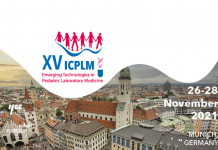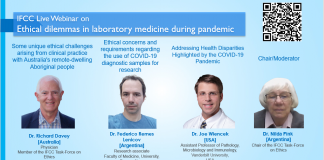Based on their findings among nearly 5,000 patients seen at the Johns Hopkins Hospital emergency department, researchers are recommending universal hepatitis C virus (HCV) screening for all adults ages 18 and older. If implemented, this recommendation would identify up to 25% of individuals with undiagnosed HCV infection who would not be detected by current screening guidelines, according to the investigators. Their findings were published in the journal Clinical Infectious Diseases.
Many people with hepatitis C have no noticeable symptoms and don’t know that they are infected. Left untreated, HCV infection can progress and cause chronic liver damage. Screening can help identify those who are unaware that they have hepatitis C so that they can receive treatment.
Currently, the Centers for Disease Control and Prevention (CDC) recommends one-time testing for all individuals born between 1945 and 1965, the so-called baby boomers. This is in addition to the agency’s long-standing screening recommendations for people at high risk of hepatitis C infection. These include individuals with HIV as well as those with a history of injection drug use, dialysis, blood transfusion, or transplants. Children born to women with hepatitis C and individuals with persistently abnormal liver enzyme (alanine aminotransferase, ALT) levels should also be tested for HCV.
Screening involves testing a person’s blood for antibodies produced in response to HCV infection. This antibody test can be positive whether a person has an active infection or has been exposed to the virus in the past. A second, different test that directly detects HCV RNA must be done to confirm the presence of the virus and diagnose an active infection. About 70% to 85% of people who are positive for the antibody will also have a positive HCV RNA test.
Research studies conducted prior to the Johns Hopkins investigation have reported high numbers of people with positive HCV antibody tests, from 13% to about 18%, in urban emergency department populations. The researchers wanted to determine the overall impact of HCV infection and evaluate how effective the CDC recommendations are in detecting people with unknown HCV infections in their urban emergency department.
The 8-week study involved screening for HCV in all patients at least 18 years old who visited the emergency department. Of 4,713 unique patients with blood samples taken as part of routine care, 13.8% were positive for hepatitis C antibody, indicating exposure to the virus. Nearly one-third of these individuals had undiagnosed HCV infection.
Of those with undiagnosed HCV infection, nearly half would have been diagnosed based on current CDC age-based testing, while 26.5% would have been identified based on risk factors, including injection drug use and HIV infection. However, just testing in accordance with CDC guidelines would have missed 25% of cases.
Among those who would have been missed by current screening recommendations, the researchers found an increase in the number of non-black men and women born between 1979 and 1995—much younger than the baby boomer group—who tested positive for HCV antibody (7.6% and 5.7%, respectively).
The researchers calculated that at Hopkins, the 13.8% overall positive hepatitis C antibody rate would equate over the course of a year to about 8,000 unique HCV antibody-positive patients and 6,700 with chronic HCV infection.
Without detection and treatment, chronic hepatitis C can lead to other serious conditions. About 60-70% of people with untreated hepatitis C develop chronic liver disease and roughly 20-40% will develop cirrhosis over many years, according to the CDC. About 1-5% of people with untreated HCV are estimated to die from a condition that results from chronic infection, such as cirrhosis or liver cancer.
Hepatitis C can be successfully treated, usually with a combination of drugs. A number of combinations have been approved by the FDA recently, and more are likely to come in the future.
The researchers acknowledged that their proposal to broadly expand HCV testing would demand significant resources but emphasized the importance of identifying patients early in the course of HCV infection. “This is an infection that can now be cured if detected early, rendering people noninfectious and thereby preventing the dire consequences that are associated with the virus,” said senior author Thomas Quinn, MD, a professor of medicine at Johns Hopkins.
Because this study was done in an emergency room setting (where the frequency of infections like HIV, which has similar risk factors, is known to be high) in a city known for having a high frequency of hepatitis C, further studies in other settings would need to be done before deciding whether it would be beneficial to recommend universal screening for hepatitis C.
Source: LabTestsOnline











